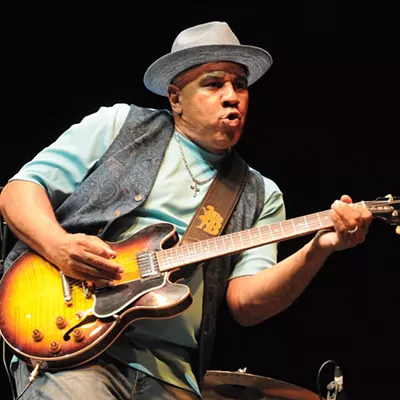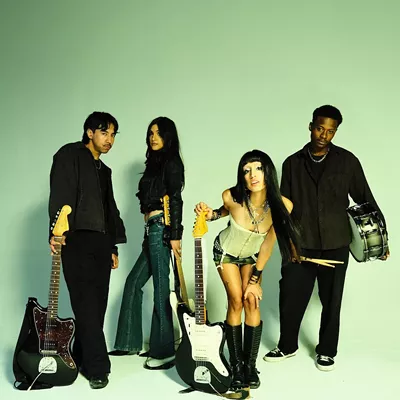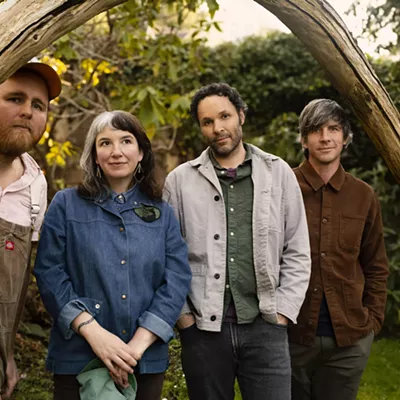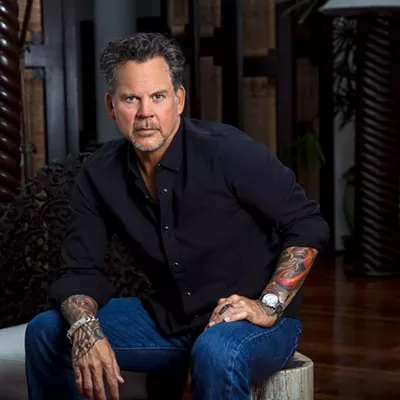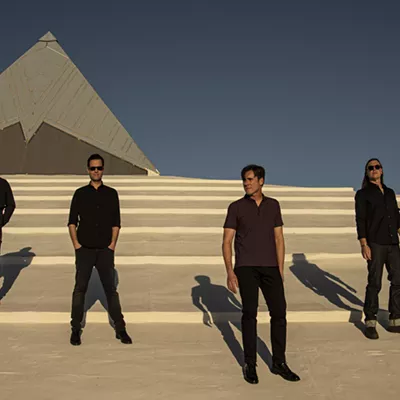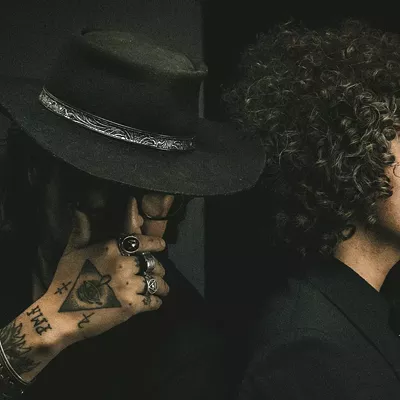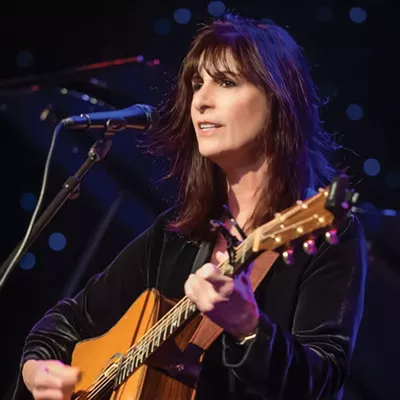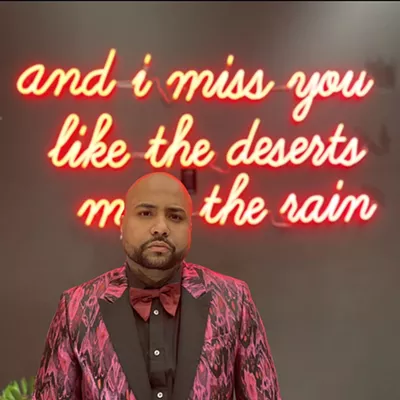After his 2013 album “Set You Free” debuted at No. 1 on the Billboard 200 chart, Gary Allan should have had it easy. And by all appearances, he would. The album’s first single, “Every Storm (Runs Out of Rain),” sold 2 million copies, topped the country charts and earned the admiration of Maya Angelou.
“There’s a country song out now which I wish I’d written, that says, ‘Every storm runs out of rain,’” the celebrated poet and civil rights activist told an interviewer. “I’d make a sign of that if I were you. Put that on your writing pad. No matter how dull and seemingly unpromising life is right now, it’s going to change. It’s going to be better. But you have to keep working.”
Meanwhile, Allan kept the momentum going with two more country hits, “Pieces” and “It Ain’t the Whiskey.”
“After two uplifting singles, Gary Allan has become the dark, heartbroken and wretched singer his fans have loved for over a decade,” enthused Taste of Country reviewer Billy Dukes in his review of “It Ain’t the Whiskey.” A truly heartbreaking ballad set in an Alcoholics Anonymous meeting, the song remains a staple of Allan’s live set.
All in all, it was a watershed year for a musician who’d spent his early days playing Texas venues like Fort Worth’s Billy Bob’s (“The World’s Largest Honky Tonk”), Cowboys Arlington (“A Real Texas Honky Tonk”) and Clute’s family-friendly Great Texas Mosquito Festival. Allan would spend the next year and a half out on the road promoting the album and, when time allowed, recording the next one.
By 2015, Allan was back on country radio with “Hangover Tonight.” During interviews, he talked about the new single and a forthcoming album, tentatively titled “The Hard Way,” which he’d just finished recording. But while the artist was talking to the press, his label was having second thoughts.
True, Allan had made a lot of money for MCA Nashville over the previous decade, releasing a half-dozen Top 5 country albums, a string of hit singles (“Right Where I Need to Be,” “Watching Airplanes,” “Nothing On but the Radio,” the list goes on), and selling upward of 10 million records. But the label also knew that corporate-controlled “country” radio stations were no longer keen on artists who drew musical inspiration from the Bakersfield sound of Merle Haggard and Buck Owens.
So MCA did what many other bottom-line-driven labels were doing at the time. They told Allan they didn’t hear a hit and sent him back to the drawing board.
All of this resulted in an eight-year gap between “Set You Free” and its country-rock follow-up “Ruthless,” which was released in June 2021. “Ruthless” reunites Allan with several of the musicians who appeared on his 1999 “Smoke Rings in the Dark” album, as well as producers Mark Wright and Tony Brown, who helped define the sound of ’90s country with a list of clients that included Brooks & Dunn, Trisha Yearwood, Lee Ann Womack and Martina McBride.
(Brown is also famous for playing piano for Elvis Presley, whose mid-period singles “Suspicious Minds” and “Burnin’ Love” had the sound Allan was aiming for on the album’s title track.)
While Allan’s label may have been ambivalent, music critics welcomed him back. “‘Ruthless’ is awash with melody, harmony, guitars and pain, everything that is great about country music,” raved Lyric Magazine, while Rolling Stone named it one of the best country albums of 2021.
Allan has spent much of his time out on the road since “Ruthless” was released touring, and he’s continuing to make up for lost time with “Best I Ever Had,” a five-song EP of new material released in 2022.
To advance the Tucson Rodeo Parade on Friday, Nov. 8, at AVA Amphitheater, Allan spoke about whitewashed country music, quarantining on a yacht, and the art of being ruthless.
You spent the second half of 2021 on the road with your “Ruthless: 25 Years the Hard Way” tour. How different would you say the “Ruthless” album is from what would have been “The Hard Way”?
Gary Allan: Oh, I would say only four songs made it from that. I’d finished it, and the record label said they didn’t hear a single. And yeah, now all you can do is say, “OK, I’ll go find more songs.” So that happened to me twice. And after a five-year or six-year period, I finally had to go in and talk to the label and say, “Look, I don’t think we’re doing ourselves any good — or doing me any good right now — just by constantly pushing this down the road. Because all it looks like is that I’m not recording music and I’m starving my fans, so we have to put something out whether you guys like it or not. And that’s this “Ruthless” album.”
And how much resistance did you get?
Allan: Not much. I mean, you know, it’s obviously frustrating when you turn in something and they don’t hear the things that you hear. So that part was frustrating, when you give them the whole album, and then they say they don’t hear a hit. And then there’s songs that they’re like jumping up and down about, and you’re like, “Eh, I don’t hate it. But if you guys think it’ll work, I’ll try it.” And then it doesn’t work and you’re like, “Well, that was a waste of time.” But we eventually got them to release something.
In years past, I’ve heard you mention the old music industry truism “You’re only as good as your last record,” and you seemed kind of resigned to that idea. But your records have never sounded that calculated. How do you walk that line?
Allan: To me, I just try to find songs that I love, and that’s the continuity. I mean, I second-guessed myself a little bit with “Hangover Tonight.” They just kept saying you have to do something that sounds more like what’s happening on the radio today. But I tried not to do that, especially with “Ruthless.” And I for sure won’t do that in the future, because I think I’ve recognized that as a mistake.
One of the songs that didn’t survive the journey from “The Hard Way” to “Ruthless” was the single “Mess Me Up,” which has some really dark lyrics (“Twist that knife / Come on make it hurt / Make me go out in a field / Light a fire and just watch it burn”) which may explain why it didn’t get much traction on country radio. Were you at all tempted to include it on this album, or did the lyric seem too dark at a time when people were 18 months into a pandemic?
Allan: No, I don’t think that had anything to do with it. To me, if it didn’t work as a single, why put it on the record? It just gives me more space to put on something else, in my eyes.
You mentioned in a recent Rolling Stone interview that you’ve been listening a lot to Gram Parsons’ “Return of the Grievous Angel,” which has that great verse about The King (Elvis Presley) wanting to put down his amphetamine crown, unbuckle the Bible Belt, and head out on the road with “the truckers and kickers and cowboy angels” to find a good saloon in every town. Which sounds like the image a lot of us have of country music back in days past — without the amphetamines, of course. Do you miss that — or, you know, miss what was left of it when you started out?
Allan: I do. I think that was the glory of country music. And I think it’s been slowly whitewashed in every sense. To me, country music was about Monday through Friday. And pop was about the weekends. And now it seems like it’s just all about the weekends and, you know, pickup trucks and beer.
Have any of your songs been about those things?
Allan: I’m sure they have. I can’t name one. I mean, I would hate to say no, and then you pull one up.
I would never do that. So how long did you go without touring?
Allan: 462 days, not that I was counting.
It seems like you’ve changed up your set list after you returned to touring post-pandemic. Is that true?
Allan: Yeah. You know, I would always like to go out and play all brand-new songs. But every time we do it, we realize the fans want to sing along with the hits. So that’s most of the set list we’re strapped to.
Back during the height of the pandemic, you were down in the Dominican Republic and refused to come back until there was a COVID-19 vaccine. Why was that? It seems like there would have been the same risk everywhere.
Allan: We were on a boat, so no. It was me and my fiancée, and one of my best friends and his wife, on a 100-foot yacht, towing the fishing boats.
So what’s that like?
Allan: You know, it was a bucket-list thing for me. I have a buddy that bought a really nice yacht, and he was trying to get me to go down there from the beginning of the pandemic, and I was a little afraid to fly. But when I did go down, it was awesome. I mean, at first I thought, “Wow, this is a lot of sitting around in isolation.” But by the end of it, I had sunk into a routine and thought, “You know what? I could do nothing for the rest of my life and be happy.”
Is that true?
Allan: I do think it was true by the end. [Laughs.] But it feels good to get back out here working again.
There’s very little that you wrote on this album. Is it hard to write songs when you’re having a good time?
Allan: You know, I don’t think it’s that. I did write a lot. But I always try to be honest with myself when it comes to whether or not I can beat the other writers and my friends in town. So I’d have them give me all their songs, and, yeah, my songs just ended up on the cutting-room floor. Which is actually kind of cool. I still think they were great songs, but I’ll probably just put them on something later.
One last question: Contemporary country radio has obviously changed a lot since you started out. Do you expect that, at some point down the road, you’ll be embraced by that industry again? Do you even care?
Allan: You mean Top 40?
Or country radio. Either one, really.
Allan: Yeah, I don’t think they’re going to go backward. And I don’t think I’m going to go that far forward. So I honestly don’t know. And it won’t affect me either way. My touring is my bread and butter, and that grows every year, no matter what radio does.
Tucson Rodeo Parade Presents Gary Allan and Runaway June
WHEN: 7:30 p.m. Friday, Nov. 8
WHERE: AVA Amphitheater
COST: Tickets start at $25
INFO: casinodelsol.com, tucsonrodeoparade.org

